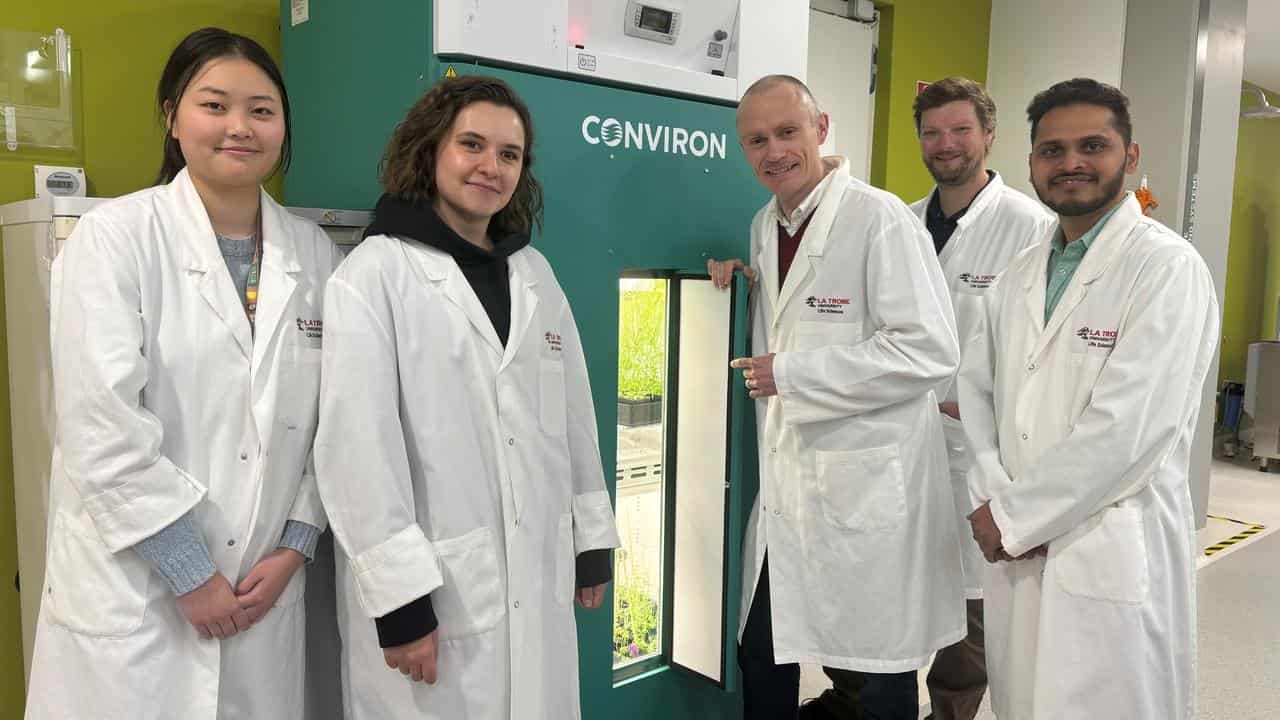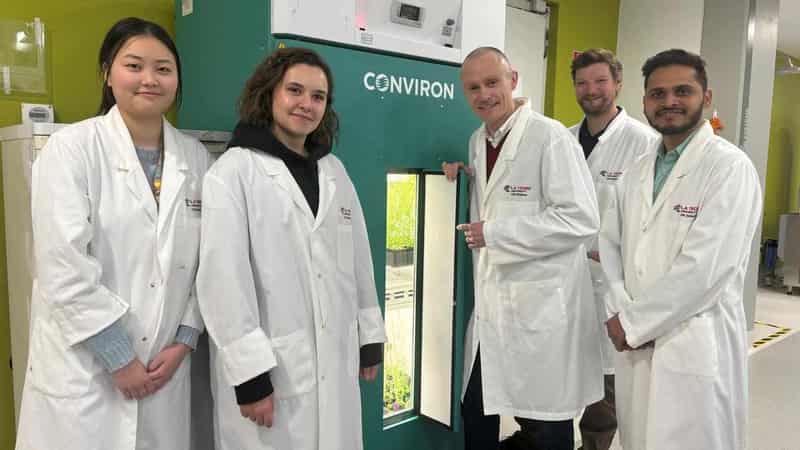
A diminutive Australian water weed will be one of the first plants grown by humans on the surface of the moon.
Researchers from La Trobe University and the University of Adelaide are among a group of scientists that will send duckweed, an aquatic plant harvested from Adelaide's River Torrens, when humans return to the lunar surface for the first time in half a century.
NASA's Artemis III mission aims to reach the moon by 2026 and will mark the beginning of a renewed effort to establish a long-term human presence on earth's nearest celestial neighbour and, eventually, Mars.
The Lunar Effects on Agricultural Flora (LEAF) project is one of three chosen by NASA so far to be undertaken on the mission, along with a seismometer that will carry out long-term monitoring of moonquakes and a tool to measure the ability of the moon's subsurface to create an electric field.
It is hoped LEAF will help build the knowledge humanity needs to one day make long-term space travel and extra-terrestrial habitation viable, University of Adelaide plant biologist Jenny Mortimer says.
"There's a whole group of researchers around the world who are thinking about what does it mean for humans to travel beyond our planet and how do we do that," she told AAP.
As well as duckweed, Dr Mortimer and the team led by US-based Space Lab Technologies will be monitoring the growth of a leafy green called brassica rapa and arabidopsis - a "model organism" used by scientists to experiment with plant genetics.
Seeds will be sent to the moon in an enclosed capsule and germinated using hydroponics.
Scientists back on earth will monitor how the plants grow via a remote camera and then analyse the genetics and metabolic processes of individual plant cells once the specimens return from their voyage.
The plants were chosen in part because they are very fast growing - a necessary consideration given they will only have around five days on the moon.
All three varieties have already been grown on the International Space Station and researchers hope the moon mission will help them further improve the plants' resilience to radiation and other environmental challenges.
Beyond acting as a food source, plants could one day provide essential materials for sustaining life in space, such as bio-plastics.
"We've always used plants as a source of materials, since the beginning of civilisation," Dr Mortimer said.
"So can we think of biodegradable, bio-derived materials, rather than using non-renewable resources that we can use to support that type of habitation?"
Space serves as a way to learn about the fundamental biology of plants and how they respond to the environment, potentially leading to real-world applications back on earth, said Professor Mathew Lewsey from the La Trobe Institute for Sustainable Agriculture and Food.
But space also serves as a lens to focus people's efforts and engagement with science.
"It can illustrate to school kids, for example, that there's a lot of things you have to do to go to space and I could maybe learn to be a space botanist," Professor Lewsey said.
"And it maybe creates a pathway to get kids into STEM that wouldn't have expected to work in this field in the first place."









